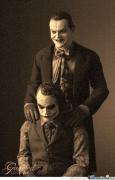Yes, BaiHu hits on a good point.
The general consensus is that a level of "Automaticity" should be attained to progress to a higher skill level.
That said, the basketball tests were typical double blind, college freshman participant tests. So, there was no prior skill development.
The testing showed the benefits of "Spacing" or "Forgetting" repetitions. I don't think they were factoring boredom as a consideration.
Todd, the real trick is getting "100 draws to an 8" circle" executed mindfully, with full attention to each rep. This practice scheme helps because you
have to refocus your attention on every evolution.
The next trick is designing a practice regimen that incorporates sufficient practice trials in conjunction with interleaving other skills sufficient to activate
the random effect.
This is not a training shortcut. It is about ROI on training time.
Google random and variable practice.
This falls(I think) under the rubric of "Deliberate Practice" as posited by K. Anders Ericsson. He came up with the 10,000 hour, 10 year rule for Elite
performance.
Deliberate practice:
Is designed to improve performance
Is repeated a lot
Feedback is continuously available
Is highly demanding mentally
Is hard
Requires explicit, well thought out goals.





 Reply With Quote
Reply With Quote




